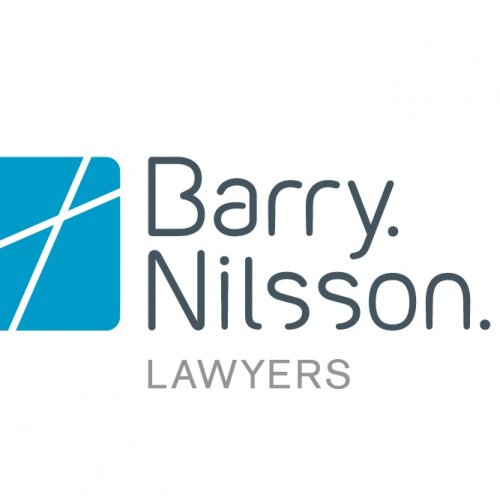Best Collaborative Law Lawyers in Brisbane
Share your needs with us, get contacted by law firms.
Free. Takes 2 min.
Free Guide to Hiring a Family Lawyer
List of the best lawyers in Brisbane, Australia
About Collaborative Law in Brisbane, Australia
Collaborative Law is a legal approach that focuses on resolving disputes amicably without going to court. In Brisbane, Australia, this practice is commonly used in family law matters, especially in divorce and separation cases. The process involves both parties, their respective lawyers, and often other professionals such as financial advisors or child specialists working together to reach a mutually satisfactory agreement. This method is designed to be cooperative rather than adversarial, prioritizing the interests of all parties involved, including children if applicable. Collaborative Law is becoming increasingly popular in Brisbane due to its focus on preserving relationships and reducing legal costs.
Why You May Need a Lawyer
There are several situations in which individuals might seek the help of a lawyer specializing in Collaborative Law in Brisbane:
- Divorce and Separation: When a couple decides to separate or divorce, Collaborative Law can help manage this transition smoothly while minimizing conflict.
- Parenting Arrangements: Parents looking to reach an agreement about the custody and care of their children may benefit from this more cooperative approach.
- Property and Financial Settlements: Collaborative Law can assist with dividing assets and liabilities without resorting to litigation, which can be costlier and time-consuming.
- Business Disputes: In some cases, Collaborative Law is also used to resolve disputes in business partnerships by encouraging open communication and problem-solving strategies.
Local Laws Overview
In Brisbane, specific legislation and guidelines govern the practice of Collaborative Law. The process typically follows these key components:
- Participation Agreement: All parties and their lawyers sign a participation agreement that outlines the rules of the collaborative process and commits everyone to resolving the issues without going to court.
- Withdrawal of Lawyers: If the process breaks down and parties choose to proceed to court, the collaborative lawyers must withdraw from representation, ensuring that all efforts are made to settle the matter collaboratively.
- Team Approach: The collaborative process often includes a team of professionals who can provide additional expertise, such as financial advisors and child specialists, to support and guide the parties towards a fair agreement.
These aspects are integral to maintaining the integrity and effectiveness of Collaborative Law in Brisbane.
Frequently Asked Questions
What is the main advantage of Collaborative Law?
The main advantage is that it provides a non-confrontational setting that promotes cooperative problem-solving, which can preserve relationships and reduce stress and costs compared to traditional litigation.
Is Collaborative Law legally binding?
Yes, once an agreement is reached and formalized in writing, it becomes legally binding and enforceable, just like any agreement reached through litigation.
Can Collaborative Law be used in all types of legal disputes?
While most commonly used in family law matters, Collaborative Law can be applied to various types of disputes, including business conflicts, as long as both parties are willing to engage cooperatively.
What if the parties cannot reach an agreement?
If an agreement cannot be reached, the process is terminated, and the parties may seek litigation. In such cases, the collaborative lawyers must withdraw, and new legal representation must be sought for court proceedings.
How long does the Collaborative Law process take?
The duration varies depending on the complexity of the issues and the willingness of the parties to collaborate. However, it is generally quicker than going through the court system.
Do both parties need to agree to Collaborative Law?
Yes, both parties must be committed to the collaborative process for it to work effectively. It requires mutual consent and participation to proceed.
Are discussions during the process confidential?
Yes, the discussions and negotiations are confidential, which encourages open communication and honest dialogue without fear of statements being used in court later.
How much does Collaborative Law cost?
While costs can vary, Collaborative Law is generally more cost-effective than litigation due to the reduced time and the avoidance of court fees. Fees depend on the professionals involved and the complexity of the case.
What role do other professionals play in the process?
Other professionals like financial advisors and child specialists can provide crucial insights and information, facilitating informed decision-making that caters to the best interests of all parties involved.
How do I choose a collaborative lawyer?
Consider seeking lawyers with specialized training in Collaborative Law, experience in relevant areas, and a good reputation for cooperation and problem-solving.
Additional Resources
For those seeking more information or legal assistance in Collaborative Law in Brisbane, the following resources can be helpful:
- The Law Society of Queensland: Offers a directory of certified Collaborative Law practitioners.
- Family Relationship Advice Line: Provides guidance and information about family law services and can refer you to collaborative professionals.
- Legal Aid Queensland: Offers resources and information about family law and dispute resolution services.
Next Steps
If you need legal assistance in Collaborative Law, consider the following steps:
- Research: Learn more about the Collaborative Law process to determine if it fits your situation.
- Consult with Experts: Reach out to certified collaborative lawyers for consultations to discuss your case and understand your options.
- Gather Information: Prepare any necessary documents or information concerning your situation to facilitate a smoother process.
- Engage in the Process: Be open to collaboration and willing to work towards a mutually beneficial resolution.
By following these steps, you can ensure that you are well-prepared to engage in the Collaborative Law process, potentially saving time, resources, and relationships.
Lawzana helps you find the best lawyers and law firms in Brisbane through a curated and pre-screened list of qualified legal professionals. Our platform offers rankings and detailed profiles of attorneys and law firms, allowing you to compare based on practice areas, including Collaborative Law, experience, and client feedback.
Each profile includes a description of the firm's areas of practice, client reviews, team members and partners, year of establishment, spoken languages, office locations, contact information, social media presence, and any published articles or resources. Most firms on our platform speak English and are experienced in both local and international legal matters.
Get a quote from top-rated law firms in Brisbane, Australia — quickly, securely, and without unnecessary hassle.
Disclaimer:
The information provided on this page is for general informational purposes only and does not constitute legal advice. While we strive to ensure the accuracy and relevance of the content, legal information may change over time, and interpretations of the law can vary. You should always consult with a qualified legal professional for advice specific to your situation.
We disclaim all liability for actions taken or not taken based on the content of this page. If you believe any information is incorrect or outdated, please contact us, and we will review and update it where appropriate.













